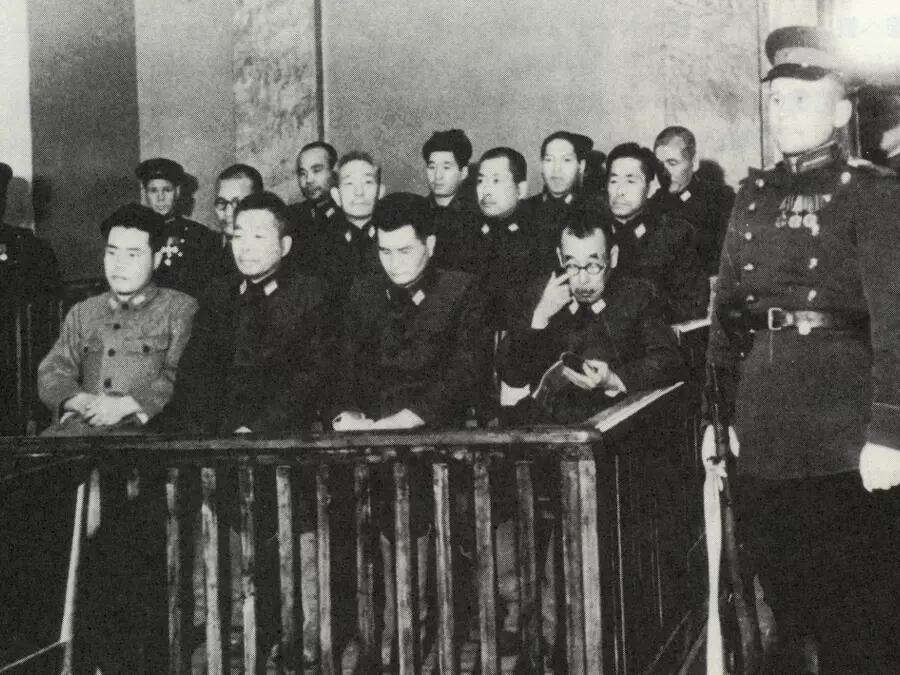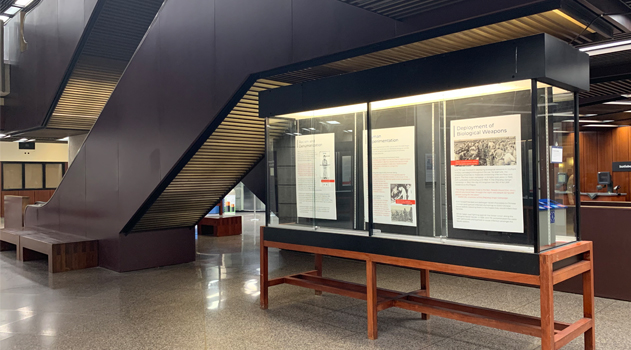
Unit 731: Medical Atrocities in Wartime East-Asia
T his fall, a featured exhibition at Robarts Library explores the widely unknown history of Unit 731 in Harbin, China, where the Japanese Imperial Army carried out countless medical atrocities during WWII. Often characterized as the “Auschwitz of the East,” Unit 731’s military scientists conducted field testing of bacteriological weapons, vivisections, frost bite experiments, and other forms of human experimentation on Chinese civilians as well as Russian and American Prisoners of War throughout the 1930s and 40s.
his fall, a featured exhibition at Robarts Library explores the widely unknown history of Unit 731 in Harbin, China, where the Japanese Imperial Army carried out countless medical atrocities during WWII. Often characterized as the “Auschwitz of the East,” Unit 731’s military scientists conducted field testing of bacteriological weapons, vivisections, frost bite experiments, and other forms of human experimentation on Chinese civilians as well as Russian and American Prisoners of War throughout the 1930s and 40s.
Drawing on photographs and data from recorded testimonies and archival evidence from the Chinese Academy of Social Sciences Research Center on Unit 731, the exhibit examines the history, aftermath, and global implications of Unit 731 from historical, political, legal, and ethical perspectives.
The exhibit was curated by graduate student Alissa Wang, who first learned about Unit 731 through her extra-curricular involvement with the NGO ALPHA Education as an undergraduate student studying international relations. Although the discipline of IR has a tendency to be Eurocentric, she found opportunities that allowed her to look beyond conventional views were the most intellectually stimulating. Now a joint doctoral student in Political Science and Law, Alissa was inspired to share this important history with a wider audience. “IR is only one example of a discipline that would be greatly enriched by a more global perspective. Whether one is studying Cold War history, American politics, history of science and medicine, international law, medical and bio-ethics, or many other academic areas, the history of Unit 731 encourages students to think in a more global perspective and in turn, to think in a more objective, nuanced, and critical way.”
An accompanying symposium on September 20, Justice in an Age of Global Politics, brought together scholars from China, Japan, and the University of Toronto to share their expertise on Unit 731’s history, how its perpetrators escaped justice in the postwar Tokyo Trials, recent efforts by members of the Japanese medical community to uncover this hidden past, and the erasure of Unit 731 from historical memory in the Cold War era.
The exhibit and symposium are supported by the Asian Institute, University of Toronto Libraries, the Unit 731 Research Center, and ALPHA Education.
Visit Unit 731: Medical Atrocities in Wartime East-Asia on the 1st Floor of Robarts Library until January 3, 2020.

